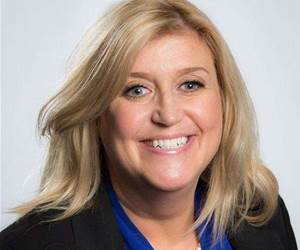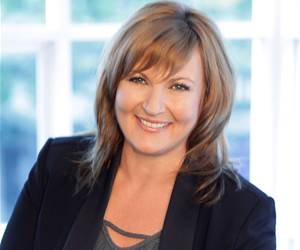Why GPT Group put all its IT into AWS
Sharmila Tsourdalakis - GPT Group

CIO Sharmila Tsourdalakis looks back on 12 months since the property giant was disrupted from within.
In 2013, property services giant GPT Group took the plunge with Amazon Web Services in a big way.
The company drove through a transformation that saw it push a whopping 95 percent of its IT environment into the public cloud - including its core SAP applications and its central leasing system.
The shift was the product of a number of IT planets aligning: serendipitously, GPT’s SAN infrastructure reached the end of its life at roughly the same time as the company's data centre leases expired.
It was presented with the option of a large capital outlay to keep the lights on, or picking an alternative that would match its ongoing growth agenda with technological scalability and agility.
At the time it made the leap, GPT was one of the first ASX companies to have been so bold with the public cloud.
The only thing that still remains on GPT-owned hardware is a single legacy application that was too old to be switched out into the AWS infrastructure.
Being amongst the first Australian enterprises to go all in to AWS also means that GPT Group is now one of the first to really gain visibility of what such an internal disruption can deliver for a business.
GPT CIO Sharmila Tsourdalakis is peering through this rare 12 month window to learn what “all in” with the public cloud really means - and she likes what she sees.
She says the cloud move has been a “major contributor” to a 30 percent decrease in IT costs across the organisation.
Getting out of GPT’s legacy data centre leases, which saw the business managing its own hardware within a third-party facility, has also reduced IT’s carbon footprint by roughly 60 percent, including calculated emissions from its AWS usage.
“But the financials are only one of the benefits,” she insists.
The AWS cultural transformation
Tsourdalakis estimates that at least 40 percent of her 30-strong team has been significantly freed up from operational infrastructure tasks as a result of the shift.
They can now focus on strategic capability and building commercial relationships both within and outside of the organisation, she said.
“You hear a lot about how IT organisations need to evolve, and I think [the cloud migration] is what really allowed us to move to that next level,” she said.
“The ability to re-direct your team’s time to more strategic initiatives has been a key enabler for us.”
For one, she says, the IT team has now been able to appoint a dedicated resource to forming partnerships with other areas of the business.
Tsourdalakis expects happier and more engaged staff will mean better staff retention and skills development further down the line.
“The team is now focussed on building skills in areas like partnership and engagement,” she said. “They are really enjoying that new capability from from an interpersonal context.”
From the public cloud big things grow
Being able to scale up operations with the click of a button is also critical for a company looking to get bigger and bigger every year.
Last month, GPT Group posted a 13 percent profit leap for 2014, with predictions that its total earnings will expand by five percent in 2015.
The company, which owns and manages high profile properties like Sydney’s MLC building, Rouse Hill Town Centre, and the Melbourne Central and Highpoint shopping centres, has embarked on an aggressive growth strategy involving both buying new property assets and expanding its wholesale funds business.
Tsourdalakis says the company's growth targets means it needs to be able to scale up quickly.
“The speed at which we can turn that around is quite measurable, and we have seen an improvement."
One recent investment seems to have taken its cues from AWS itself.
In 2013, GPT led a $6 million investment in Silicon Valley flexi-working start-up Liquid Space, which has seen the two pair up to offer online desk bookings for the Rouse Hill and Melbourne Tower premises.
“Through our investment in Liquid Space we have been able to allow people to rent office spaces by the hour at the click of a button,” Tsourdalakis says.
Making the public cloud work
Not everyone can turn cloud transformations into a success, and shifting an entire IT infrastructure base into a public cloud is not a path well-traversed for numerous reasons.
So what is GPT’s secret?
With her 12-month window of hindsight, Tsourdalakis credits early stage due diligence and being upfront with the board about the risks involved.
“We conducted a large amount of due diligence on the approach, including commissioning independent risk reviews. So there was certainly visibility within the company about the risk,” she said.
“While we were one of the first in Australia to actually move all-in-one to Amazon, there were precedents overseas we could look to.
"We still stick to our plan to manage the risk. It's good to see, 12 months on, that extra effort has paid off.”


